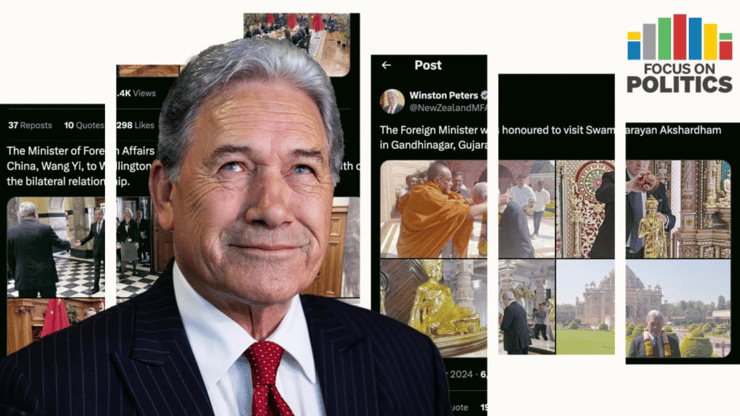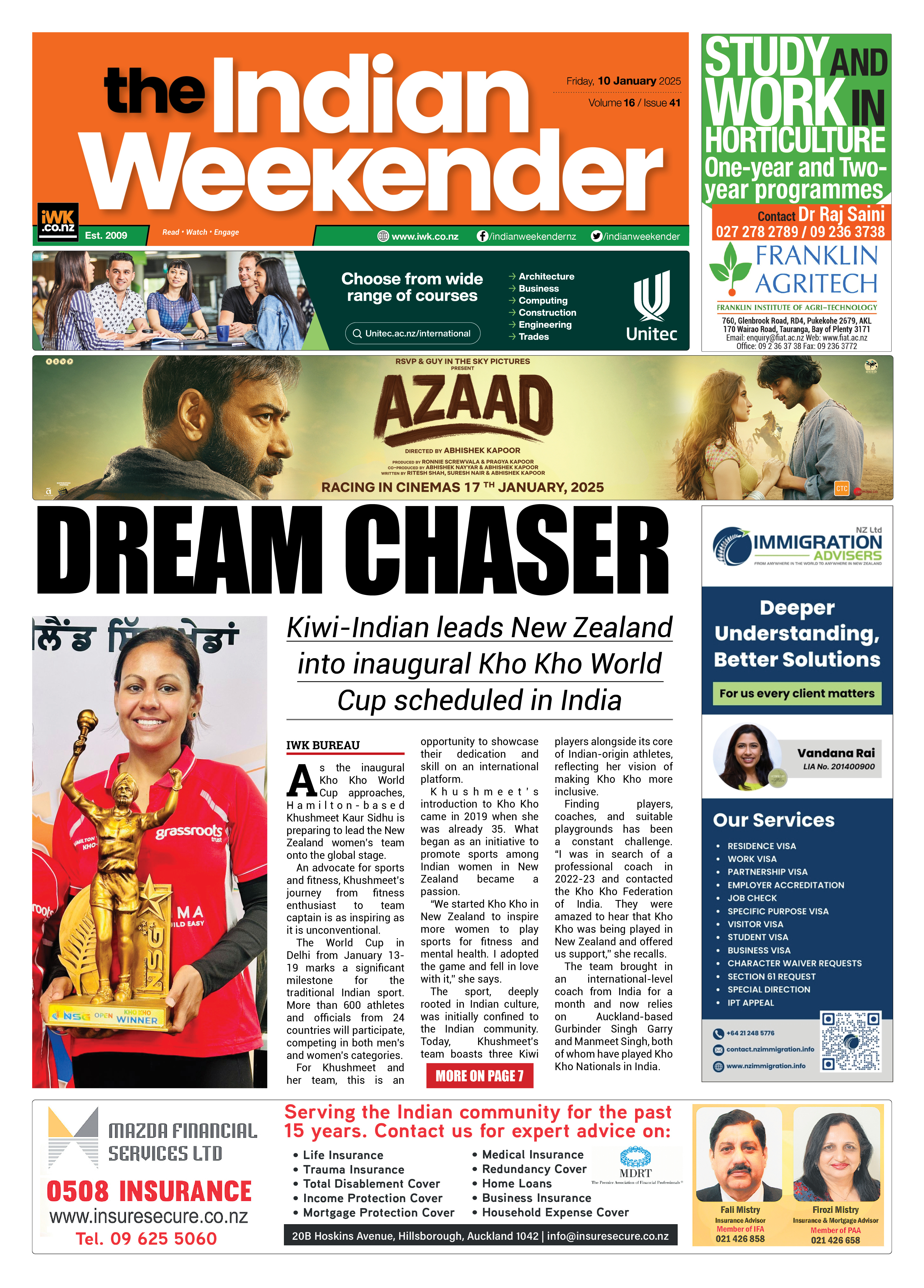Winston Peters Navigates Troubled Waters With India, China

"There is surely no one with their eyes open now who believes we live in a benign strategic environment" - Winston Peters
New Zealand must pull its weight on defence and security, Foreign Minister Winston Peters says in a sit-down interview with RNZ, after talks with both India and China.
While trade was a driving force behind those engagements, it is clear tension points - like the South China Sea, and potential involvement in AUKUS - are becoming more central to foreign policy discussions in the Indo-Pacific.
With Prime Minister Christopher Luxon's commitment to secure a trade deal with India hanging over the coalition government, Peters this month travelled to the country which last year became the world's most populated. New Zealand has traditionally struggled to dismantle trade barriers with the growing economic powerhouse, in part because both countries have strong dairy industries neither wants to disadvantage.
Discussions included the potential for New Zealand to provide expertise in animal husbandry and breeding - but Peters' mission from the outset was focused on building the relationship and achieving some smaller economic wins. He came away with a list of 10 to 15 items New Zealand and India could work together on including on kiwifruit, Antarctica, and coastal shipping. International education is something of a jewel in New Zealand's crown in that relationship - and Peters says the government is determined to see it return to pre-Covid levels.
But security and defence were also a key topic - raised, Peters says, both by India's External Affairs Minister Subrahmanyam Jaishankar and its National Security Adviser Ajit Doval. Peters says Doval had "matters to share of concern" including around New Zealand's defence force and contribution to defence in the Asia Pacific.
"I'm not going to presage the Budget on the 30th of May other than to say we will not be gaining the influence and progress that we want if we don't have certain parts of our Budgetary assignment clearly of a respectable level."
Peters carefully avoids any hint that the talks with India highlighted concerns about China's growing influence in the Indo-Pacific, or that his subsequent meeting in Wellington with China's Foreign Minister Wang Yi included more than a rudimentary outline of the progress made on trade.
Peters says Wang enjoyed his visit to New Zealand - which followed a stop in Australia and included conversations with Luxon and Trade Minister Todd McClay. He asked Peters to visit China "as soon as I could". Trade was, of course, part of the discussion and Peters is clear he views the relationship as one between equals.
"They would understand ... when we say how important China's trade is to us, but our trade is very important to them as well: they know if people start starving in China it wouldn't be long before you have a massive insurrection.
"Chinese GDP growth has slipped from possibly well over the 5 to probably now between 4.2 and 5. They know and they recognise that they're not making the progress that they should be and will want to make. That makes New Zealand more critical to them in my view, because it means they will be less able to supply some the fundamentals that their marketplace needs."
He says New Zealand was warned "by some of us" that focusing on exporting milk powder via Fonterra - a single product into a single market - was never a good long-term strategy. and massive diversification was needed. Such a strategy now makes closer alignment with India an even more attractive prospect.
Defence was also a feature of the talks. Peters acknowledges New Zealand having voiced interest in joining Pillar Two of the AUKUS - the partnership between Australia, the UK and US - has been a sore spot.
"China has made public statements through their officials, they've made public statements through their official media wing, about AUKUS and about what we should and should not be doing. We made it very clear to China, we expect to be treated as an equal, as we treat small island nations as equal, and we expect to be considered having a right to make our decisions about our long term security."
Peters was also not shy about raising New Zealand's own concerns, including over China's increased presence in the South China Sea.
"I actually put it to them that some of our concerns can be conceived as being imaginary. They're not. We're realistic, we've got our eyes wide open ... we're saying to them: 'honour the law of the sea', we're not the only country saying that.
"I raised with him the question of the Uyghurs and their fundamental rights. We didn't shrink from saying that, and at least they heard us out."
In this week's Focus on Politics, Political Editor Jo Moir sits down with Foreign Minister Winston Peters after his visit to India, and a visit from his Chinese counterpart.




